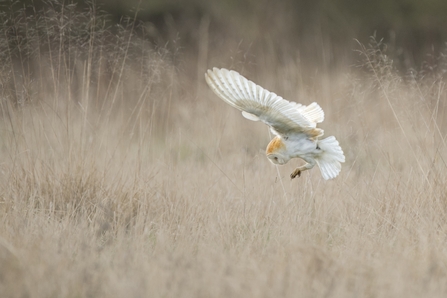
We're calling on all political parties to commit to halting and reversing the loss of nature © Andy Rouse/2020VISION

We're calling on all political parties to commit to halting and reversing the loss of nature © Andy Rouse/2020VISION
Just two of the questions that we have put to each of the county’s Prospective Parliamentary Candidates (PPCs), ahead of next week’s general election. In addition, we've asked each candidate how they would deal with pressing wildlife issues in each of the five constituencies:
Westmorland and Lonsdale: What will you and your party do to ensure we protect and restore our rivers, lakes and sea, and especially in relation to Lake Windermere?
Barrow and Furness: How will you stop the development of, or significantly reduce the environmental impact of the proposed holiday park adjacent to the internationally-significant nature reserve at Sandscale Haws, which will result in irreparable harm to nature?
Penrith and Solway: What will you and your party do to tackle inland water pollution from sewage, agricultural run-off and vehicles?
Carlisle: What will you and your party do to progress halting the extraction of peat for commercial use at the last remaining site in Cumbria?
Whitehaven and Workington: What will you and your party do to create green jobs, especially for younger people?
We've asked candidates to reply as soon as possible and will post their responses here, so that voters can see how their potential future MPs plan to take action to restore nature.
Once elected, we've asked to meet with the new MPs at one of our wildlife sites, to discuss the MPs’ pledges to wildlife and the environment in their part of Cumbria.
This is a great chance to impress on our future representatives that this is the most important challenge we face, both nationally and locallyStephen Trotter, CEOCumbria Wildlife Trust
Stephen Trotter, CEO, Cumbria Wildlife Trust said:
“People know that our natural world is in crisis and that this disaster has consequences for us all. In Cumbria only 15% of land is currently managed or protected for wildlife and only one fifth of this protected land is in a good condition for wildlife. In the North West of England, 41% of the Irish Sea is ‘protected’ but only 5% has any sort of protection measures, and 0% is fully protected. 30% is the bare minimum that nature needs to start recovering but we're far short of this and need your help to turn things around.
“We know that people care about the twin nature and climate crises. We were thrilled to be part of a delegation from Cumbria that joined in the rally on Parliament last weekend, when 60,000 people marched, to demand that politicians Restore Nature Now. It was great to be standing shoulder-to-shoulder with thousands of people who share our sense of urgency and worry about the environment. Thank you for your fantastic support!
“I now urge everyone to keep an eye on our website in the coming week, so see how their potential future MPs have responded to our questions. Also, please contact the PPCs yourselves, to let them know why nature matters. We’ve got an easy to use email on our website that you can adapt, adding details of the local wildlife issues that are important to you. This is a great chance to impress on our future representatives that this is the most important challenge we face, both nationally and locally.”
We're calling on all political parties to commit to halting and reversing the loss of nature by: